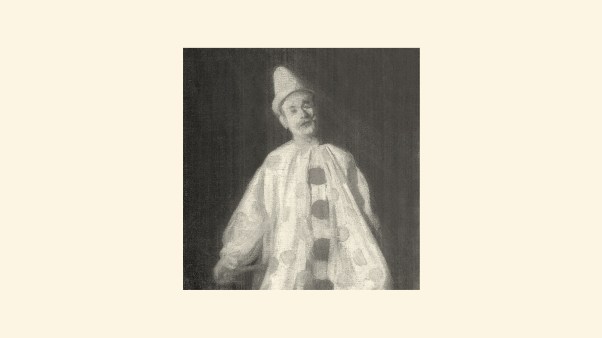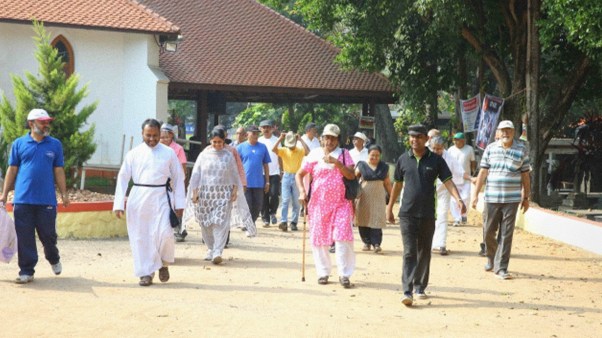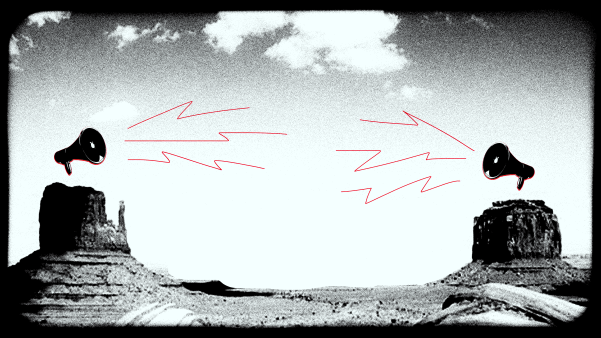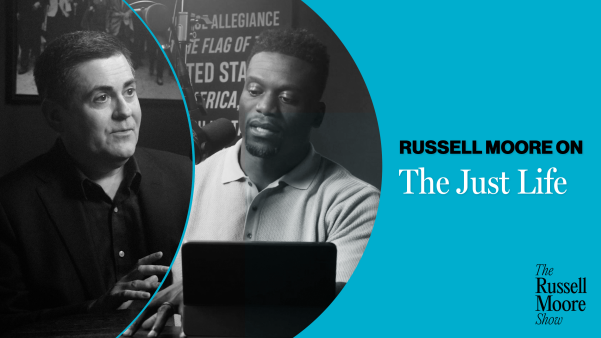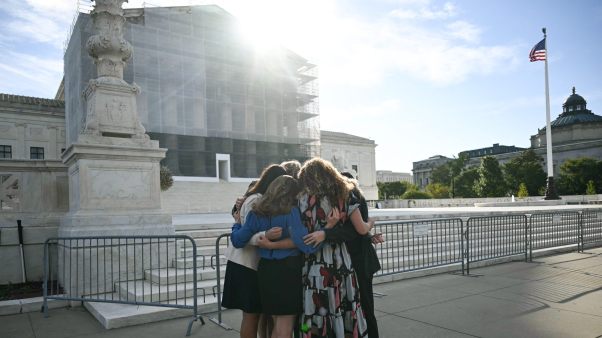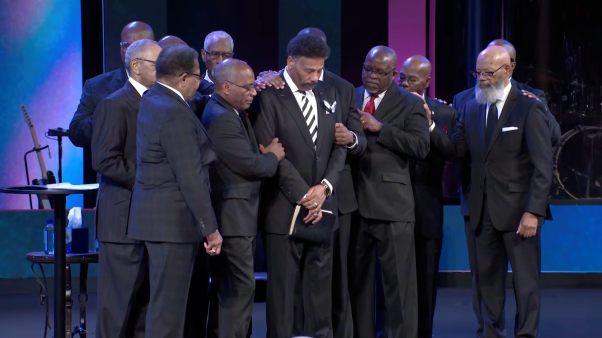On archetypes and raising children.
Suddenly, after ten thousand years of myth and history, we find ourselves floundering in a marsh. The footing upon which our forebears proceeded through life has fallen away and we are awash in the fen.
What marsh? What fen? What footing?
The footing, surely, would have been the whole set of suppositions that lay underneath the ordinary business of human life for all tribes, all cultures, and all civilizations, Oriental, African, Occidental, or Oceanic, for as many aeons as we can uncover. One of these suppositions, and one that appears to have been vastly widespread, was that humanity appears under the splendid and dual modality of male and female, and that this is good. It took no special perspicacity to see this: any savage, any peasant, any coolie, proceeded on this assumption, along with the sages, seers, and saints. All young men and women becoming aware of each other, all bridegrooms approaching their brides, all husbands and wives coupling fruitfully, all fathers and mothers united in rearing their sons and daughters so that they in their turn might enter this wonderful Dance—they all thought, if they thought about it at all, that the distinction was there, and given, and clear, and rich.
But suddenly we are told that it has all been a mistake. The distinction that has appeared to everyone as such a bright fixity, and that has nourished all song and story, and has gilded all human ordinariness with bliss, and from which has sprung all manner of valor and charity and nobility and joy—this distinction is cultural only. It is superficial. It is irrelevant. Nay, it is pernicious. We are persons, not men and women. Pray don’t chain us down to these heavy and embarrassing fleshy categories. There is an entity “me” that has nothing to do with the costume under which I am obliged to masquerade. I (a man, alas) am indistinguishable from you (a woman, alas). You and I have nothing to gather from our anatomy. Our bodies furnish no cues to anything more far-reaching than necessary biology. Some mechanism, of course, had to be devised for multiplying the race, and this seems to be how the pieces fell. But let’s leave it at that.
This is not a straw man (or straw person, shall we say) that I have conjured. I never could have thought it up. But it has been offered to us in the last half decade, and it is called the androgynous ideal; it underlies a great deal of the public debate on the topic of sexuality now. It is sometimes even urged by religious people that Jesus was a sort of crypto-androgyne, the idea being that he was mild and could weep and therefore does not fit society’s stereotypes as to what maleness means.
But surely Christian vision would see all this as gnostic? That is, there have always been efforts to disengage earthly existence from the prison of flesh, and to fly to the heavenly aether where we are liberated into real and eternal life, unhampered by these bodies. Eastern religions, mystery cults, and all forms of gnosticism and Manichaeism offer this as the desideratum. But early in the game, the Church condemned the whole effort as heterodox. She did this because she espoused the doctrine of the Incarnation. This is the worst possible scandal. God is a spirit. It is too mortifying that he should appear in human flesh, not just in a charade, but really, truly united to that flesh, taking our nature to himself and becoming man. All the gods, at one time or another, popped down in human form (usually it was to satisfy their concupiscent desire for some nymph or shepherd boy). But only the God of Israel can be called Immanuel. “When Thou tookest upon Thee to deliver man. Thou didst not abhor the Virgin’s womb,” says the Te Deum. That’s getting clinical.
Indeed, all the great acts in the drama of redemption proceed in grossly carnal terms. Creation (he made these things—these pebbles and flatworms and radishes); Covenant (you had to lug stones and build altars, and knife your best lamb in the throat); Incarnation (he did not abhor the Virgin’s womb); Passion (the drama gets down to pieces of timber gashes); Resurrection (oh-oh—just when we thought the flesh had been overthrown, out it comes again); Ascension (this is too much: that flesh taken into the midmost mysteries of the triune godhead forever); Eucharist and Baptism (things—physical things—at the center of Christian vision and practice for as long as time lasts).
Clearly, Christians are stuck with a whole scheme of things that invests matter with enormous significance. Nay, that is putting it too mildly. It is more than a question of attaching some adventitious meaning to matter, thus turning everything physical into symbols or some such. Is it not, rather, that the Christian vision would see the Creation as one, whole, seamless fabric, with everything from seraphim to jellyfish to shale participating in one good order? The distinction between the visible and the invisible, or matter and spirit, is an unhappy, post-Fail distinction, a fissure in the fabric, introduced by us when we made our grab in Eden and doomed ourselves to live thereafter in a divided world. The disjuncture is of our making, and we must live with it. No doubt our very eyeballs were affected at the Fall, so that we can no longer see things as undivided. But Christian vision would have a prior notion of a realm in which there is a lovely harmony at work entailing all things, so that the very external shapes and forms of things bespeak what they are.
But what does this have to do with fatherhood?
Would it not be that, over against the current effort to redefine sexuality entirely, and hence to reshuffle the roles that have attached to male and female, and thus to realign family life in brand-new patterns—would it not be that Christians will want to pause in front of three huge data before they join this brisk effort?
First, history. If all tribes and cultures, and all sages and poets, have seen something a certain way, and it has appeared to them, not as horrid but as blissful, then surely any reflective person will hesitate before agreeing to recast the whole picture under the pistol of one decade’s debate? (Over against this, it may be objected that this same argument can be used to perpetuate slavery. But the answer to this objection is that the human race has not celebrated slavery as the richest source of joy and virtue, whereas it has done this with the ancient sexual distinctions.)
Second, nature: the stark biology of the matter attests to what all poetry and myth have celebrated, namely that the male, bearing that particular aspect of the imago Dei disclosed in male stature and anatomy, enacts somehow a role of initiator and seeker. The sexual imagery is too vivid to need comment here. And we may also guess, in this connection, that the reason the poets and philosophers and mathematicians and composers and conquerors and chairmen have been mostly men has been not so much because of a diabolically successful plot to keep women at their brooms, as because the male of the species is bedevilled with an odd awareness of being on the perimeter of things somehow, and must seek the center. Hence he has tried, fiercely, sorrowfully, desperately, to bring some order out of chaos—in poetry, philosophy, music, conquest. Whereas the woman, bearing the image of God under the species of womb and breasts, is already there at the center of the operation. She does not need to go anywhere, as it were. Perhaps old jests about women’s intuition were not wholly misbegotten. If this is all wildly fanciful, and too embarrassingly folklorish, we may at least wonder whether, when we meet protohistoric and universal types (man as father, lord, initiator, protector, and woman as mother, lady, receiver, and nourisher), we have come upon, not stereotypes, but archetypes.
Third, Scripture. The Bible assumes given sexual structures in its language. It is fervently urged now, of course, that the revelation came to us during patriarchal centuries, and that the language is thus culturally conditioned. God as King and Father, and Jesus as Son and Bridegroom—this is all Mediterranean, and really ought to be seen for what it is. The difficulty here is the old difficulty about image and thing. When you change the imagery, you change the thing. Jesus as kind corner cop rather than shepherd, for example, since ghetto kids don’t know about sheep. It is a plausible and well-intentioned effort, but loses something. We may need to tell city kids about sheep somewhere in there. Or the image of the Cross: we don’t crucify the misfits in our society now, we hurry them to analysts’ couches. Hence, in the effort to update Christian imagery, we ought to substitute tiny silver couches on the chains around our necks, since the Cross is a wholly outmoded symbol. But surely something has got lost here? Or God as King: we don’t have kings in modern secular democracies, so perhaps we ought to begin speaking of him in more contemporary, and thus more gripping, terms—as Chairperson of the ad hoc caucus, perhaps. (There would be a squeak trying to huddle all those syllables into, say, Handel’s acclamation of God as “King of Kings,” where he set the music up for only three syllables; but we can surely manage this.)
The point here is that Christians suspect that biblical language and imagery judge us, and not vice-versa. It spreads and arches over all of history, like the Christos Pantocrator looming gigantically over Orthodox Church interiors. If the Psalms sing about dragons and great deeps praising the Lord, we are not altogether prepared to jettison the picture when the Loch Ness expedition fails to rouse the monster. If we hear of morning stars singing, we want to hold onto the picture somehow, as a clue and glimpse of dazzling realities beyond the reach of our radio antennae that don’t seem to be catching that song. If the Apocalypse is full of the imagery of crowns and scepters and horses, we hesitate before substituting fedoras, attache cases, and flying saucers. If the apostolic writings are full of pictures of husband as “head” and wife as “body” (pictures drawn by the Apostle, not from the Curse, as is frequently urged now, but from the twofold source of Creation and the eschatological mystery of Christ and his Spouse), then we will want to know what on earth that may mean before we replace it all with our sociology texts.
It is for some such reasons as the above that I find myself unprepared to espouse the new castings of family life so briskly urged upon us now. If I may transpose into a first-person key here, I may list the notions that seem essential to me in my experience of fatherhood.
First, it is not my experience in any case. Or rather, it is, but it is mine only in the sense that I have stepped into a mystery that has been here since the beginning. All fathers have stepped into it, whether they are aborigines, tsars, or bank clerks. For all of them, there has been the great mystery of entering (literally) into the knowledge of the other, and of finding that knowledge to be both ecstatic and fruitful. This other creature, this third party, issues from the mystic (and very carnal) union of the two who bear the two antiphonal modes of the divine image.
What does it all mean? What on earth is all this plumbing and obstetrics about? Is it not the enactment, under the species of male and female anatomy, of what is true, namely that we are made for each other, and that our wholeness is to be found in thus uniting, and, further, that this wholeness turns out to be, not a solitude, but fruitful? The very biology attests to the theological mystery: I, a man, am made for the other; but not just any other. I am made for the other who is also the image of God, but not me. Not a mirror image of myself. (Hence, whatever may be being said now in behalf of homosexual union, one will want to have this Edenic picture at the bottom of his imagination, in which the Adam and the Eve—me and my wife, now, ten thousand generations later—enact the human mystery in which the image of God, under the dual modality of man and woman, appears in its wholeness.)
My experience of fatherhood, then, is not mine. It depends upon my being united with a woman, my lady and wife, as all fathers have been united. (Promiscuity, and hence the fathering of “fatherless” children, is nobody’s ideal.)
Secondly, my experience of fatherhood is unfair. It is unfair because it absolutely cuts me off from ever being a mother. Here is a whole, rich, aspect of being human that I, because of my anatomy, am cut off from. I shall never, never, know the experience of bearing a child in my body. I shall never suckle an infant. I may dandle my babies, and change their diapers, and bathe them, and rock them to sleep, and kiss and fondle and love them (and I love all that): but I have not carried them in my womb, and nursed them at my breast. It is unfair. My wife has entered into mysteries that I cannot quite share. I may stand next to her at the delivery table (I did), but it is she and not I who is physically experiencing parturition.
But no. It is only some testy, crabbed, pinched, and mercenary frame of mind that will complain thus. It will be the frame of mind that is forever demanding equal time and equal shares and equal slices of the pie. Dear heaven! My wife got the whole pie of motherhood. Where’s the equality in this universe? Where’s the justice? I’m a second-class citizen! I protest! I demand …
No. No, no, no, say all lovers, and all mothers and fathers since Eden. What are you talking about? These mysteries of love, and of fruitfulness, and of birth and fatherhood and motherhood, know nothing at all of your calculating, political, committee-model language. Of course your wife got the whole pie, and she got it for one reason and one reason only, and that the worst possible reason: she is a woman. You are utterly discriminated against on the basis of your sex alone. You are cut off from the absolutely central human thing, if this is how you insist on seeing it.
So I am bidden to retreat from my headlong protestations of equality, as Peter was hushed up with his chattering on the Mount of Transfiguration, and to look again at the splendor unveiled.
I, like all men, have been united with this woman who brings as her great gift to me that aspect of the image of God which completes me. And I offer to her the only gift I can offer, my very limitation, namely, my manhood, which is that aspect of the divine image made to complete her, and which I bear. She was made to be a mother. Her womb awaits the fructifying seed. I was made to be a father. My loins offer that seed to the only matrix that will receive and vivify it. She was made to be a mother. Her breasts and arms await the infant who will find nourishment and comfort there. And I? What gift may I bring now? What role may I play in this unfolding drama? Have I only a bit part in the first scene, never to reappear until the curtain call?
It would not seem so. The image I bear, of maleness, and the role I enact, of husband and father, are deeper and more far-reaching than the single act of procreation. That forms part of my role, of course. But then?
Then I am still husband and father. It is my appointed gift, or burden, or yoke, to be husband and father, precisely because I am a man, it would seem. With respect to my wife, I am instructed by the Apostle to be “head.” Not boss: head. The Apostle gives me my cue here by referring to the headship of the divine bridegroom vis-á-vis his spouse. It is a headship brought as gift, not wielded as club, and offered—“submitted,” if you will—to her, for her, in obedience to the divine choreography, so to speak. I did not think it up.
What is this headship, if it is not boss-hood? Here again, I must take my cues from the Apostle, nay from the Lord himself: it seems to have something to do with answerability before God. Somehow I am the one who stands before the most high as the one responsible for this family. Responsible all by myself? Surely not, since I am made one with my spouse here. And yet, just as the one, single act of procreation distributed itself between the two of us for one single end, so here there is no question of exchanging roles, any more than there is of Christ, in the interest of his spouse’s health and freedom, stepping aside and saying, “Right. Now we adopt the round-table model.” What can it mean? I am not sure what it means, any more than I can unscramble and plot out the mystery of the Eucharist. But I obey, and in obeying, move perhaps slowly but nonetheless farther and farther, towards the place where I will be vouchsafed to see what it all means.
And with respect to my children? It means that I bear the yoke of fatherhood. Again, I did not make up the terms of this task. And I am unable, for reasons I have listed above, to assign it all to a dark plot, or to society’s stereotypes. I passionately believe that this ancient office is rooted in all the divine mysteries, and unfurled in Creation, and enjoined upon me and all fathers for as long as time lasts. Nothing new—but nothing outdated either.
I and my wife and our children live now, as everyone does, under the heady mythology of change. Our epoch is in the process of changing the terms of everything, not just politics, ecology, economics, and technology. Genetics, sexuality, morality—it is all to be redone. This mythology has a wide and eager hearing in the evangelical church, and very convincing voices plump for it. It frequently entails a delicate rewriting of the Bible, in the name of “biblical” radicalism. I would be one of those who are not prepared to whisk away the picture of family structures, say, as that has been understood by the prophets and fathers and the whole church, for all of history. No matter what the world is into which I usher my children, I will want them to have experienced a realm in which love and authority are synonymous, and where liberty and obedience are synonymous, and where something of what is true in the eternal realm is made present and visible in ordinary, flesh-and-blood family relationships. Unlike the Freudians, I do not believe that we have projected our human experience of fatherhood onto the cosmos and come up with the notion of God the Father. On the contrary, I believe that the Father has given us a little toe-hold into something of that eternal Fatherhood by giving to us the experience of fatherhood ourselves. I stand—frightening thought—in loco Dei for the moment towards my children.
This is dangerous language. It is dangerous on at least two counts. First, it may lead me to suppose that I am God, or can replace God, for my children, and this is false. Secondly, it may make it sound as though, if a man believes this, he has a guarantee of success in raising his children. Flere I must earnestly and hastily demur: my children, at the time of this writing, are seven and ten. The acid test is still to come. God in heaven alone knows how I’m doing in this role. I will write no books or articles on successful fatherhood—at least not until I am ninety, and both my children have turned out to be aging saints, and have raised their own crop of mature saints. Any time before that is too soon.
But how shall I understand this role of being, so to speak, in the place of God for my children? Is it not that I must understand that, just as great mysteries are both cloaked and revealed in the very imagery of maleness that I and every man bear, so in this household in which I find myself, the ancient role of father is appointed to me, as the ancient role of mother is appointed to my wife, and that we must do our best to learn our cues and lines, and to enact our roles as the playwright intended? How, for example, shall my children ever grasp the odd notion that it is love and not caprice or tyranny that demands obedience unless they discover this paradox at home? I want them to be familiar with this paradox so that they will already be familiar with the God whose love (not whose tyranny) makes high demands on us. And how shall they know that obedience and freedom are synonymous unless they are taught the steps in this strange dance at home? They will grow up in a world that thinks these ideas are outrageous and brutalizing, and that insists that the way towards freedom and authenticity lies in declaring our total independence of authority and in forging our own morality. How will anyone explain to them about the God “whose service is perfect freedom” if I have not somehow tried not only to teach them this, but to be this for them?
I may fail. But that will be, precisely, my failure. Perhaps I may step altogether aside here and point in a more sure direction. I point to my own father. He was a man oppressed with great burdens and limitations (he thought), and he suffered intensely over a sense of his own unworthiness. But to six children, all of them now aging, and all on the side of the angels, he stood, decade after decade, as an image of the Father. He loved us greatly, and he asked (and got) our obedience. The household was by no means a participatory democracy. That would have been a shabby betrayal. Obedience was nonnegotiable. Things ran on schedule. Order was of the essence. But lest this sound impossibly grim and Edwardian, it was also the most hilarious household I have ever encountered. We spent a good deal of our time laughing our heads off, mostly at each other. But the bedrock upon which the hilarious liberty was grounded was that we had a father who, in obedience to the ancient rubric, shouldered his yoke of fatherhood, with all that that has implied of primacy and headship, and carried it for the sake of his family; and a mother who understood in her innermost being what the great charge to our Mother Eve was—to be a help meet for this man. I am sure that our vision of God is to be attributed very heavily to our experience of love and authority embodied in our parents; and I would think that our vision of Christ and his Church is to be attributed very heavily to what we witnessed of this man and this woman enacting year after year before our eyes the corresponding (not interchangeable) roles of husband and wife.
D. Bruce Lockerbie is chairman of the Fine Arts department at The Stony Brook School, Stony Brook, New York. This article is taken from his 1976 lectures on Christian Life and Thought, delivered at Conservative Baptist Theological Seminary in Denver, Colorado.



